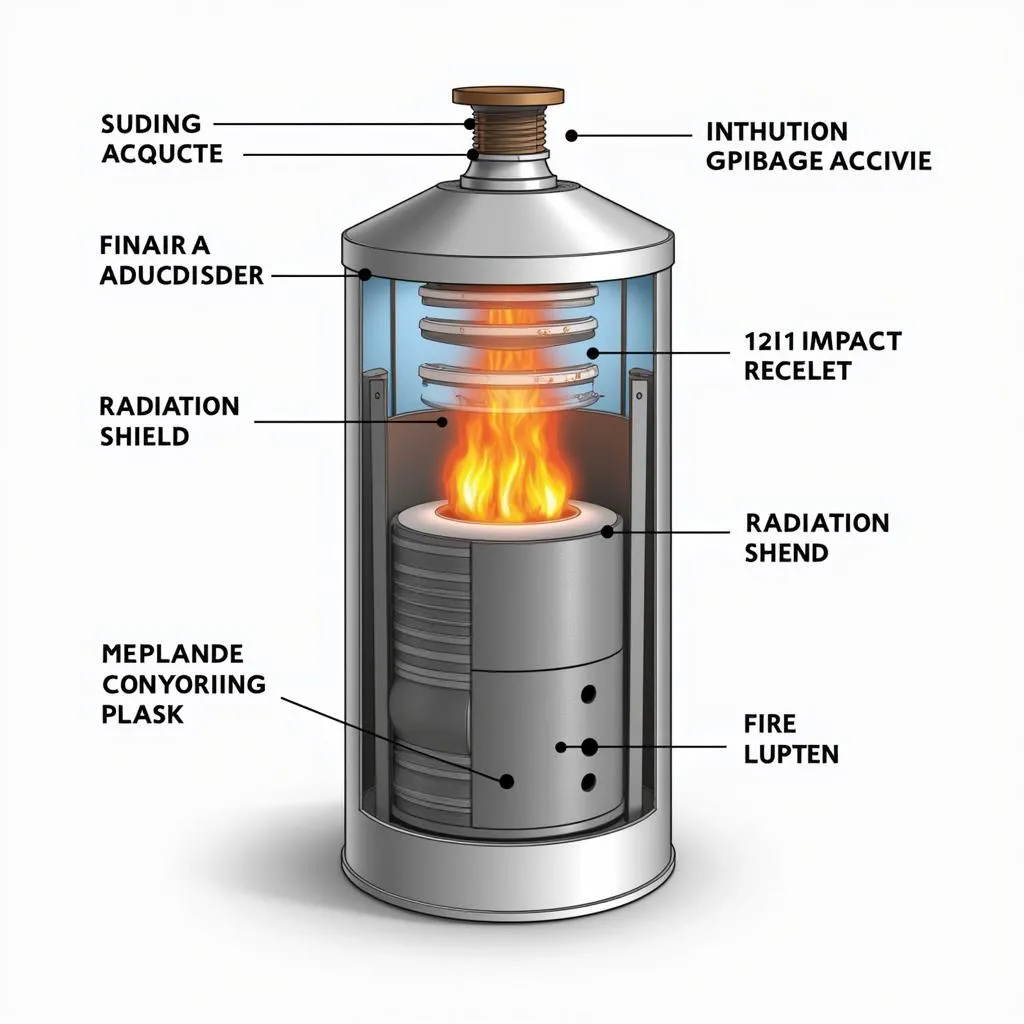DODX Nuclear Flask Car: Unraveling the Mystery
The term “Dodx Nuclear Flask Car” might sound like something out of a science fiction thriller, but it actually refers to a critical component of real-world nuclear safety and transportation. These highly specialized railcars are designed with one purpose in mind: to safely transport spent nuclear fuel and other radioactive materials across the United States. While shrouded in secrecy and often misunderstood, their role in safeguarding public health and supporting the nuclear power industry is undeniable.
What Makes a DODX Nuclear Flask Car Unique?
Unlike conventional railcars hauling everyday cargo, DODX nuclear flask cars are engineered to withstand extreme scenarios. From high-impact collisions to fires and even potential sabotage attempts, these robust vehicles are built to protect their hazardous contents and prevent any release of radioactive material.
Fort Knox on Rails: The Anatomy of a Nuclear Flask Car
The heart of a DODX nuclear flask car is, unsurprisingly, the nuclear flask itself. This heavily shielded container, often weighing over 100 tons, houses the spent nuclear fuel assemblies. Here’s a closer look at its key features:
- Impact Resistance: The flask’s outer shell, typically made of thick steel, is designed to absorb and dissipate impact energy in case of an accident.
- Fire Protection: Multiple layers of insulation and heat-resistant materials protect the flask’s contents from extreme temperatures, ensuring their integrity even in a fire.
- Radiation Shielding: Lead, steel, and other dense materials provide a robust shield, minimizing radiation levels outside the flask to meet strict safety regulations.
 DODX Nuclear Flask Car Design
DODX Nuclear Flask Car Design
Beyond the flask, the railcar itself incorporates numerous safety enhancements:
- Reinforced Frame: The car’s frame is significantly stronger than standard railcar frames to withstand high-impact forces.
- Specialized Couplers: Heavy-duty couplers with multiple redundancy systems help keep the car securely connected during transit, even in a derailment.
- Impact Absorbers: Large shock absorbers integrated into the undercarriage cushion impacts, further reducing the forces transmitted to the flask.
A Legacy of Safety: The DODX Track Record
Despite the inherent risks associated with transporting radioactive materials, DODX nuclear flask cars have an exemplary safety record. Decades of operation and rigorous testing have proven the effectiveness of their design and construction.
DODX Nuclear Flask Car vs. Regular Railcar: Key Differences
| Feature | DODX Nuclear Flask Car | Regular Railcar |
|---|---|---|
| Primary Cargo | Spent nuclear fuel, radioactive materials | General freight, commodities |
| Construction | Heavily reinforced frame, impact absorbers, specialized couplers | Standard steel frame, basic couplers |
| Safety Features | High-impact resistant flask, fire protection, radiation shielding | Basic safety features for cargo and crew |
| Regulations | Subject to stringent federal regulations and oversight | Subject to general rail transportation regulations |
| Visibility | Often unmarked or discreetly marked | Typically marked with company logos and cargo information |
FAQs: Addressing Common Concerns
Q: What happens if a DODX nuclear flask car is involved in an accident?
A: The flask’s robust design is engineered to withstand extreme impacts and prevent any release of radioactive material. Numerous tests have been conducted to simulate accident scenarios, and the flasks have consistently demonstrated their ability to maintain their integrity.
Q: Are DODX nuclear flask cars tracked and monitored during transport?
A: Yes, the movement of these cars is closely monitored by both the Department of Energy and other relevant agencies. Security measures are in place throughout the transportation process.
Q: What routes do DODX nuclear flask cars travel on?
A: Specific routes are determined based on various factors, including origin and destination points, population density, and potential security concerns.
Seeking Further Information?
For inquiries about automotive diagnostic tools, particularly those related to European car models, our team at Car Diag Xpert is here to assist you. Contact us via WhatsApp at +1(641)206-8880, email us at [email protected], or visit our workshop located at 276 Reock St, City of Orange, NJ 07050, United States. We offer 24/7 customer support to address all your automotive diagnostic needs.
